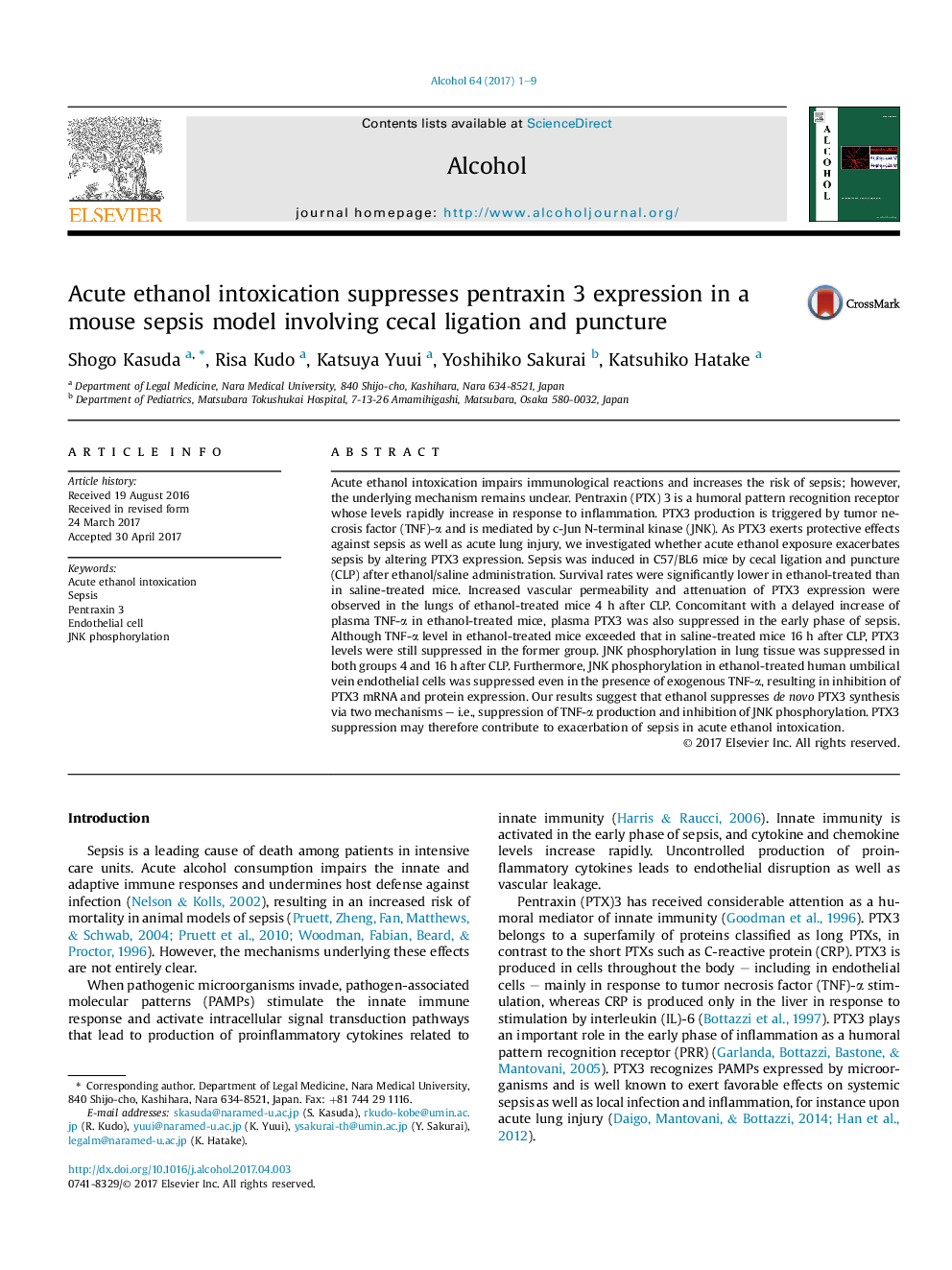| کد مقاله | کد نشریه | سال انتشار | مقاله انگلیسی | نسخه تمام متن |
|---|---|---|---|---|
| 5119557 | 1485965 | 2017 | 9 صفحه PDF | دانلود رایگان |
- Acute ethanol intoxication is associated with sepsis risk.
- Sepsis was induced in C57/BL6 mice by CLP after ethanol/saline administration.
- Survival rates were lower in ethanol-treated mice than in control mice.
- PTX3 expression was attenuated in the lungs of ethanol-treated mice.
- Ethanol suppresses de novo PTX3 synthesis.
Acute ethanol intoxication impairs immunological reactions and increases the risk of sepsis; however, the underlying mechanism remains unclear. Pentraxin (PTX) 3 is a humoral pattern recognition receptor whose levels rapidly increase in response to inflammation. PTX3 production is triggered by tumor necrosis factor (TNF)-α and is mediated by c-Jun N-terminal kinase (JNK). As PTX3 exerts protective effects against sepsis as well as acute lung injury, we investigated whether acute ethanol exposure exacerbates sepsis by altering PTX3 expression. Sepsis was induced in C57/BL6 mice by cecal ligation and puncture (CLP) after ethanol/saline administration. Survival rates were significantly lower in ethanol-treated than in saline-treated mice. Increased vascular permeability and attenuation of PTX3 expression were observed in the lungs of ethanol-treated mice 4 h after CLP. Concomitant with a delayed increase of plasma TNF-α in ethanol-treated mice, plasma PTX3 was also suppressed in the early phase of sepsis. Although TNF-α level in ethanol-treated mice exceeded that in saline-treated mice 16 h after CLP, PTX3 levels were still suppressed in the former group. JNK phosphorylation in lung tissue was suppressed in both groups 4 and 16 h after CLP. Furthermore, JNK phosphorylation in ethanol-treated human umbilical vein endothelial cells was suppressed even in the presence of exogenous TNF-α, resulting in inhibition of PTX3 mRNA and protein expression. Our results suggest that ethanol suppresses de novo PTX3 synthesis via two mechanisms - i.e., suppression of TNF-α production and inhibition of JNK phosphorylation. PTX3 suppression may therefore contribute to exacerbation of sepsis in acute ethanol intoxication.
144
Journal: Alcohol - Volume 64, November 2017, Pages 1-9
